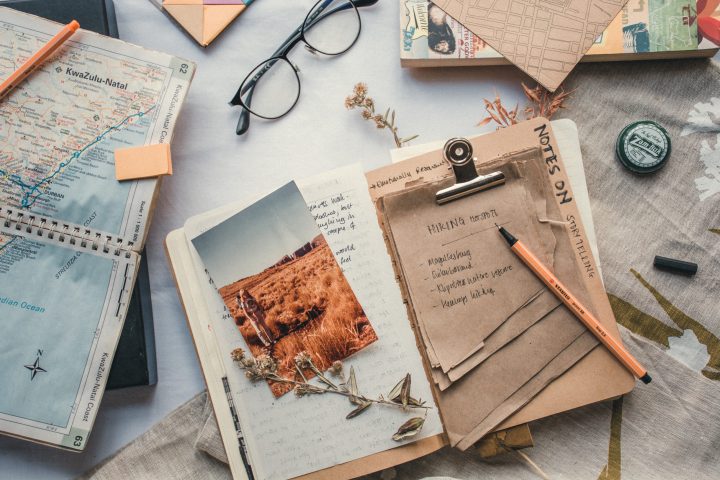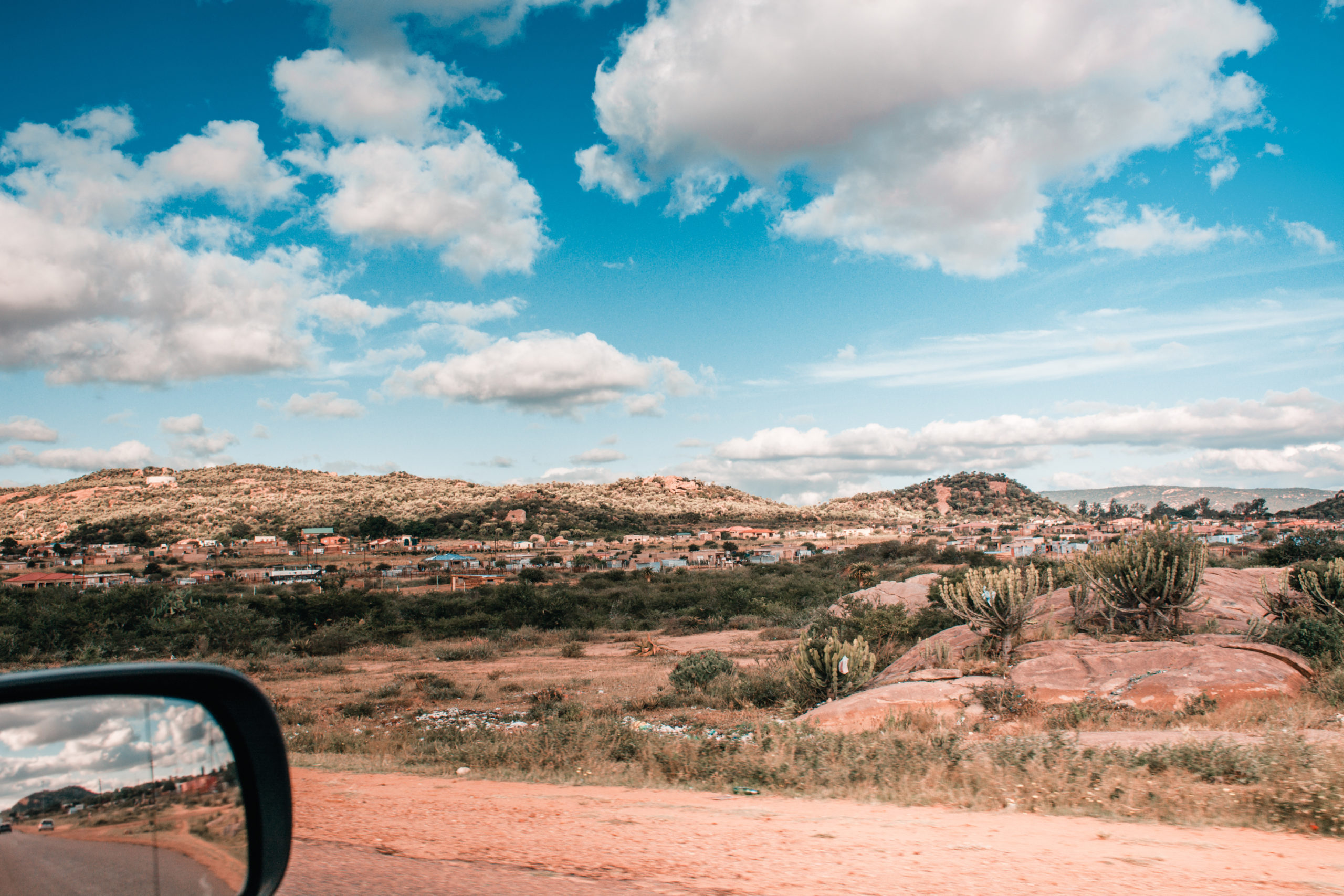TRAVEL OP-ED
On the importance of inclusivity and ecotourism

The dawn of 2020 saw the rumblings of responsible travel starting to gather momentum - an eco-exploration earthquake set to shake up tourism. Then a global pandemic threatened momentum. What will the future of travel look like?
“After a briefing from South Africa’s Department of Tourism, it was reported that domestic tourism won’t resume in full until December 2020, and international tourism won’t resume in South Africa until February 2021,” wrote the Telegraph on 2 June 2020.
The Tourism Business Council of South Africa (TBCSA) has strongly countered this statement and is lobbying for a phased reopening to international tourists starting as soon as September 2020.
Then, on 26 June 2020, following yet another ministerial briefing a statement surfaced from South Africa is Travel Ready – a PR and Communications collaboration of influential agencies in the tourism and hospitality space – declaring that, “despite some confusion regarding the interpretation of these recently amended regulations, it is quite clear that the regulations allow for intra-provincial travel for leisure”.
Don’t pack your weekend bags just yet: the regulations in place still do not allow for leisure travel. But there is no doubt that the question about when we will be able to travel again has been prevalent in the debates around the opening of borders amidst the pandemic – still, with the number of Covid-19 cases rising every day, travel might not be an option anytime soon.
But when it will be again – as it is in other countries – how will travel look like?
In a recent report, senior trend researcher and analyst Nicola Cooper highlighted conscious and slower consumption as “The New Normal”. Cooper emphasises that: “Slower consumption and putting the planet before industries will be integral to building our new business models. The current global pandemic is the accelerant to creating smarter, more sustainable processes with people, planet and profit outweighing unnecessary purchasing or ‘aesthetic desires’.”
Writing that sustainable travel is the future, Julia Cosgrove, the editor of AFAR magazine, adds: “Do better by the place, its local residents, its economy, and the travellers who want to visit [afterwards]. Mission, heart, and purpose will become even more vital as travellers start tiptoeing back out into the world … Trust. Expertise. Experience. These simple words matter now more than ever.”
The dawn of 2020 saw the rumblings of responsible travel starting to gather momentum – an eco-exploration earthquake set to shake up tourism. Then a global pandemic threatened momentum.
As South African went into lockdown, award-winning author Arundhati Roy published a poignant article in the Financial Times. She said, “Historically, pandemics have forced humans to break with the past and imagine their world anew. We can choose to walk through it, dragging the carcasses of our prejudice and hatred, our avarice, our data banks and dead ideas, our dead rivers and smoky skies behind us. Or we can walk through lightly, with little luggage, ready to imagine another world”.
For now, traveling across provinces is not an option and not recommended – yet, it shouldn’t prevent us from imagining all the places we’ll go – to paraphrase a certain Dr Seuss – and how we will travel, once the pandemic recesses.
According to a The New York Times’ special report on being a more sustainable traveller, exploring your immediate backyard is good for the planet and a great option until we are allowed to explore the country further. “Generally speaking, the closer you stick to home, the lower your carbon footprint. Finding local adventures, such as walking in unexplored corners of your neighborhood or visiting museums in your city, is among the greenest forms of travel”.

Image by Melanie van Zyl

Image by Melanie van Zyl
Still closer to us and as allowed under current Level 3 of the national lockdown, self-drive excursions in public and private game reserves may continue. On Monday 8 June, South Africa National Parks (SANParks) opened Kruger National Park for day visitors after a 60-day break, and Ezemvelo also announced that hiking routes and game drives are available across parks in KwaZulu-Natal. The iSimangaliso Wetland Park has also been getting the park ready for visitors by deep cleaning public facilities.
The understanding is that parks and nature reserves need to reopen if anything, for economic reasons; yet, only three SANParks are self-sustaining: Kgalagadi Transfrontier Park, Addo Elephant National Park and Kruger National Park can fund themselves using income such as entry fees. These big players are propping up our smaller national parks, but all are equally deserving of a visit when safe to do so.
If you are more interested in coastal visits, consider exploring a Marine Protected Area (MPAs). South Africa has increased protection of its continental waters to 5% within MPAs – a drastic improvement of 0.4% thanks to the ‘Only This Much’ campaign. The hope is to achieve 10% protection of the oceans around South Africa by 2020.

MPA iSimangaliso – Image by Melanie van Zyl

MPA iSimangaliso – Image by Melanie van Zyl
If you’re curious about wildlife, be mindful of the ethics; a new set of official guidelines outlines them clearly.
Once we can travel again across provinces (and internationally), but before you book your next holiday, take some time to interrogate your spending; where does your money end up? When possible, think of businesses that give back, stays that champion sustainability and operators who uplift others. Money spent locally supports small businesses and families, which in turn validates the value of visitors.
One perk of the global pandemic is that social distancing should alleviate the congregation of people – the crux of overtourism concerns. However, conversely, the resounding reaction to overcrowding might also see travellers flocking to natural, wide-open, easy-to-isolate spaces. And there has been a noticeable push to get tourists to South Africa’s ‘forgotten provinces’, which not only does going off the proverbial track relieve tourist congestion, but travel spreads wealth too.
Hannerie Visser from Studio H investigated lifestyle changes in a recent trend report, Imagining an altered food landscape in a post-corona world. They say, “We will see an intensified return on domestic tourism. There’ll be a shift away from travel to big cities as people head out of congested areas to ‘getaway’ for mini-vacations. There will be a strong focus on our history, origin and local flavour. Businesses, restaurants and products that can offer uniquely local and authentic products will thrive”.
If you do look at local tourism, consider the Northern Cape, set to erupt in splendour this spring with the annual flower season; or meet the makers of the Ribola Art Route in Limpopo; choose a remote getaway to stays rooted in community, such as !Xaus Lodge in the Kgalagadi, the newly formed Babanago Game Reserve, iSibindi Africa’s Kosi Forest Lodge, or check out registered Fairtrade properties.

!Xaus Lodge – Image by Melanie van Zyl

!Xaus Lodge – Image by Melanie van Zyl

!Xaus Lodge – Image by Melanie van Zyl
In conjunction with more conscious spending is the continued rise in wellness. During a global pandemic? Hardly a surprise. From mental wellbeing to active outdoor escapes to nutrition transparency, the Covid-19 outbreak has only accelerated this surge.
“The current acute focus on health and self-care translates to mindful eating and eating to enhance and balance mood … Everything we do in healing, post-coronavirus world will be first and foremost about health”, noted Visser on Bizcommunity in May 2020.
And indeed, yoga classes delivered on Zoom have burgeoned, the number of downloads for meditation apps has increased – TechCrunch reported that in April alone Calm had 3.9 million downloads and Headspace 1.5 million, and a renewed passion for planting vegetables, cultivation from food scraps, the blossoming of balcony gardens plus greater awareness around food waste and plant-based dining is evident.
How does this translate to travel? It’s all a return to the source. Where does our energy and food come from? Is it organic, sustainable, locally-grown, indigenous, empowering?
Apps are making sustainable travel easier – for example, should you decide to travel to the Cape, you can download the World Wildlife Fund’s Wine Champion Wine Guide application to quickly suss out the farms that are working sustainably, championing conservation and offering eco-activities.
In the future, the combination of flygskaam and higher airfare fees might mean it’ll be tougher to fly affordably between multiple destinations. But slower travel can often make trips more meaningful; they might also require more planning, consideration and, beneficially, less stress and fewer carbon emissions.
One 2013 survey of 485 adults in the US linked travel to enhanced empathy, attention, energy, and focus. Other research suggests that the act of adapting to foreign cultures may also facilitate creativity. Talking about empathy, Dennis Schaal wrote for Skift, a particularly relevant article dubbed, Don’t miss this seminal moment for racial justice, travel industry.
“After all, the travel industry — in theory — should be built on inclusivity because the foundation of travel is discovery, and meeting and doing business with people from different cultures, races, ethnic groups, genders, and viewpoints, and breaking down barriers”.
When we travel better, it fosters empathy for everyone, both host and tourist. The trips we take are also a part of our legacy; what do we leave behind?
South African travel writer and Creative Director at Bare Stories, an organisation aimed at pioneering LGBTQIA voices in the country and the continent, Welcome Lishivha reckons it’s time to get on to the road of discovery.
“Be really open to who people are, the same way you are open to where the road takes you. Never consider yourself to be so above others that you can’t learn from them. Curiosity may have killed the cat, but it certainly enhanced the traveller. No whitesplaining, mansplaining or straightsplaining anything to anyone. We must actively seek experiences that expand our often provincial worldviews to instead carry views as broad as our landscape and as open as the Karoo skies. I believe we can have an open and optimistic attitude towards each other.”
Sustainable travel is not a splurge. Eco-tourism is no extravagance. Inclusivity is beyond priority. Travel enriches our collective humanity. Kind, conscious travel is the new responsible tourism, and it’s an imperative necessity. As with most things, it’s best implemented right at home. DM/ ML
Melanie van Zyl is a writer who launched #StayHomeSouthAfrica, a good news hub and responsible tourism promoter that inspires South Africans to travel locally once it’s safe to do so. If you would like to get involved, use #StayHomeSouthAfrica to share your feel-good travel stories about sensational South Africa. Curated by travel professionals, www.stayhomesouthafrica.org is also home to affordable travel deals for locals.

















 Become an Insider
Become an Insider